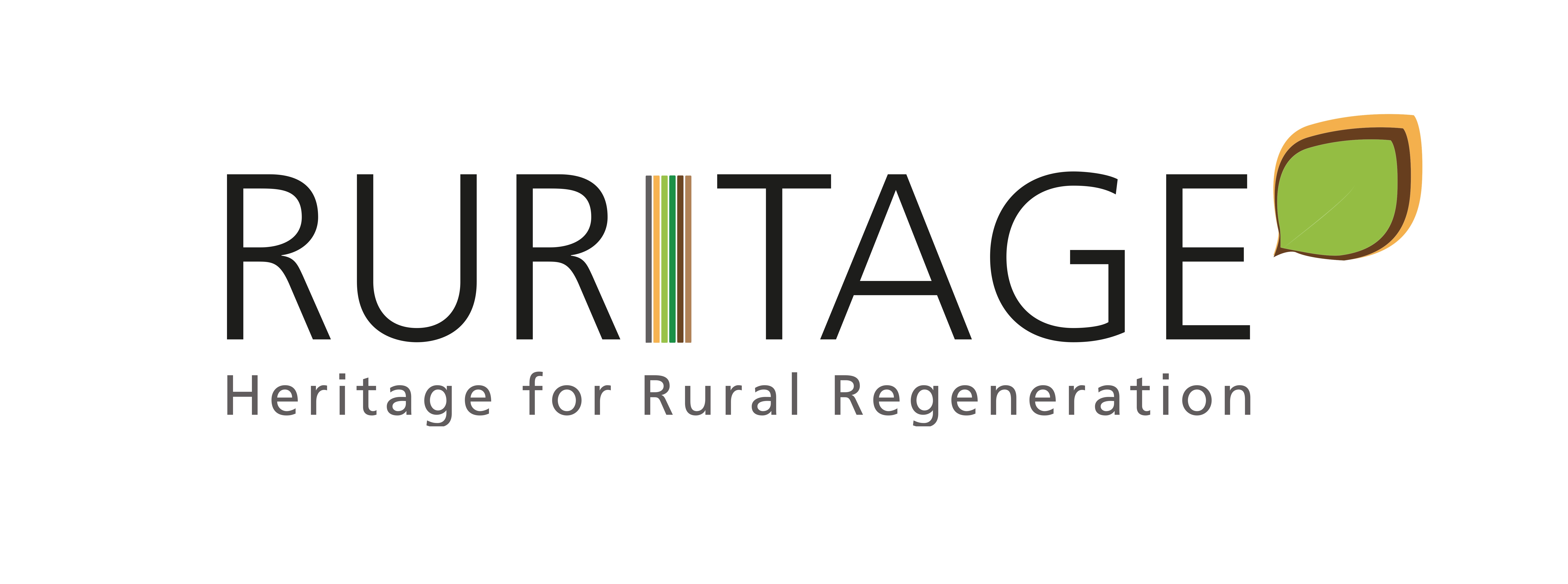
Abstract
European rural areas embody outstanding examples of Cultural and Natural Heritage (CNH) that need not only to be safeguarded, but also promoted as a driver for competitiveness, sustainable and inclusive growth and development. RURITAGE establishes a new heritage-led rural regeneration paradigm able to turn rural areas in sustainable development demonstration laboratories, through the enhancement of their unique CNH potential. RURITAGE has identified 6 Systemic Innovation Areas (pilgrimages; sustainable local food production; migration; art and festivals; resilience; and integrated landscape management) which, integrated with cross-cutting themes, showcase heritage potential as a powerful engine for economic, social and environmental development of rural areas. The knowledge built in 14 Role Models (RMs) and digested within the project, will be transferred to 6 Replicators (Rs) across Europe. Through a multilevel and multidirectional process of knowledge transfer, RMs will mentor and support the Replicators in the development and implementation of their strategies and, at the same time, will further increase their knowledge and capacities. A robust monitoring system will assist this process. Local Rural Heritage Hubs, gathering stakeholders and civil society, will be settled in Rs to work as living labs where heritage-led rural regeneration strategies will be co-created and implemented, while in RMs they will reinforce the ownership of CNH. Both RMs and Rs will also benefit of the RURITAGE Resources Ecosystem, a set of tools including, among others, a rural landscape mapping tool (RURITAGE Atlas) and a Replication Toolbox within an online and interoperable platform. These tools will foster knowledge building, providing evidence and supporting replication and up-scaling activities of the implemented heritage-led regeneration strategies and plans, contributing to mainstream heritage in Regional, National, European and global policies.
Project details
Unibo Team Leader: Simona Tondelli
Unibo involved Department/s:
Centro Interdipartimentale di Ricerca Industriale su Edilizia e Costruzioni
Coordinator:
ALMA MATER STUDIORUM - Università di Bologna(Italy)
Other Participants:
Apre Ag.Promoz.Ric.Europea C/O Murst
(Italy)
Kulturno Izobrazevalno Drustvo Kibla
(Slovenia)
Fundacion Cartif
(Spain)
AEICE Agrupación Empresarial Innovadora para la Construcción Eficiente
(Spain)
Agence De Cooperation Interregionale - Reseau Chemins De Saint-Jacques De Compostelle
(France)
Unesco
(France)
Geo-Naturpark Bergstrasse-Odenwald
(Germany)
Panepistimio Kritis -University Of Crete
(Greece)
Emi Epitesugyi Minosegellenorzo Innovacios Nonprofit Kft
(Hungary)
PIAM onlus ASTI
(Italy)
Almende B.V.
(Netherlands)
MAGMA UNESCO Geopark
(Norway)
Izmir Buyuksehir Belediyesi
(Turkey)
ARGE Geopark Karawanken-Karavanke
(Austria)
Westbic - Innovation And Management Centre Limited
(Ireland)
Association Institutio Pro Educationem Transilvaniensis
(Romania)
Zavod za kulturo, turizem in promocijo Gornja Radgona
(Slovenia)
ICLEI European Secretariat GmbH
(Germany)
D.A.Re. soc. cons. a r.l.
(Italy)
Politecnico di TORINO
(Italy)
Norges Miljo-Og Biovitenskaplige Universitet
(Norway)
University Of Plymouth
(United Kingdom)
Ca Provence-Alpes-Agglomeration
(France)
Borghi Italia Tour Network S.R.L.
(Italy)
Natural History Museum of the Lesvos Petrified Forest
(Greece)
Katla Geopark
(Iceland)
Crs - Stowarzyszenie Centrum Rozwiazan Systemowych
(Poland)
Izmir Institute of Technology
(Turkey)
Federación Colombiana de Municipios
(Colombia)
Comune di Appignano del Tronto
(Italy)
Consulta Europa Projects And Innovation Sl
(Spain)
Fundacion Santa Maria La Real Centro De Estudios Del Romanico
(Spain)
Fundacion Tecnalia Research & Innovation
(Spain)
De Surdurulebilir Enerji Ve Insaat Sanayi Ticaret Limited Sirketi
(Turkey)
Savonia-Ammattikorkeakoulu Oy
(Finland)
Visegrád Város Önkormányzata
(Hungary)
Direccion De Bibliotecas Archivos Y Museos
(Chile)
Judetul Harghita
(Romania)
Total Eu Contribution: Euro (EUR) 9.975.651,25
Project Duration in months: 48
Start Date:
01/06/2018
End Date:
31/05/2022


